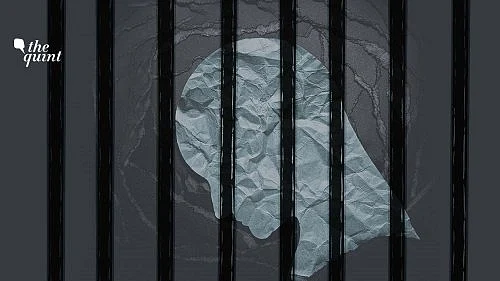“They virtually killed my husband, in the guise of adjudicators and by pronouncing strange orders. They forced my husband to kill himself “ said the wife of a man who reportedly killed himself to escape the trauma of insults meted out by a kangaroo court in an Odisha village.
Sunand Behera had gone to consult a doctor at the local Primary Health Center in Khatia, in Nayagarh district, with one of his relatives, seriously ill. Not able to find the doctor at the hospital, Sunand was upset and had an argument with the doctor over the phone.
The next day, the doctor lodged a complaint with the local village body, which has the power to adjudicate over several disputes. Usually, such bodies, or ‘kangaroo courts’ comprise the ‘Mukhia’ (head) of the village and a few of his cohorts. The body is usually a self-appointed entity, often with a regressive mindset.
Heavy Fine Was Imposed on Sunand
Sunand was summoned by the kangaroo court, and after a few discussions, it gave its ‘verdict’. It was a shocking one. Sunand was found guilty by the so-called ‘court’ and was directed to apologise to the doctor, lying prostrate before him and touching his feet. Further, he was slapped with a penalty of Rs 10,000 in cash. And all that he was to do in front of the entire village.
For Sunand, father to two children and a hardworking person, the punishment was humiliating, and the penalty was huge.
If the doctor thought Sunand’s action to be a culpable offence, he could have lodged a complaint with the local police. “Sunand had to adhere to the diktats, we felt extremely bad. What upset us further is the sadistic pleasure writ on the face of the doctor” said Kartik Behera(name changed), a villager, talking to this reporter over the phone.
Sunand had to borrow money and pay in cash to satisfy the ‘adjudicators’. But he was visibly perturbed and he, reportedly, could not move on from the trauma caused by the public humiliation. He killed himself.
Here comes the role of the local police in question. Talking to the media, the Superintendent of Police, Nayagarh, Sarthak Kataria, reportedly, said the police have received a written complaint from the deceased’s wife. He said the “police were trying to find out whether there is any evidence that points to abetment”.
Just One of Hundreds of Cases
The above incident is one of the hundreds of such cases where ‘kangaroo courts’ have been found exercising their undue writs. Even in the state capital, Bhubaneswar, there are over a dozen such Kangaroo courts in slums. They masquerade as arbitrators right under the nose of the police.
Very recently, three girls were tonsured for joining a feast with some tribal girls of a village in the Koraput district.
A woman was banished from the village on charges of walking around with another man of the village. It was made out to be a case of an extramarital affair. The woman was a mother to four children.
Recently, two persons from Khalipatna and Kotaranga villages in Nayagarh district filed a PIL in the Orissa High Court seeking intervention in a case. The Kangaroo court there banished 20 families from the village. They left the village, leaving behind their homes and agricultural land and are in extreme hardship. They were also fined Rs 55,000, and failing to pay the sum, they were ordered to leave the village, according to a report in the New Indian Express.
In another shocking incident in Nihalijharan village in Keonjhar district, a youth, Maheswar Baske, was ostracised for marrying outside his community. Baske was also fined a penalty of Rs. 25.6 lakh before being outcasted and banished.
In fact, after marrying the girl, Baske had left the village with her but had to return due to the COVID-19 pandemic.
When the couple came back, the Kangaroo court summoned them and forced them to either pay the penalty or leave the village. The couple again fled the village.
Kangaroo courts have been exploiting such cases to make money. But unfortunately, a majority of such cases either go unreported, or no action is taken even after police complaints.
(Dinendra Narayan Singh is a Bhubaneswar-based senior journalist and political analyst. This is a report and analysis. The views expressed are the author’s own. The Quint neither endorses nor is responsible for them.)
(At The Quint, we question everything. Play an active role in shaping our journalism by becoming a member today.)
